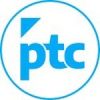How to be a Successful Publishing Freelancer – in Eight Steps
Freelancing is a major life decision – it’s challenging, demanding and requires a dash of courage. How can you flourish as a self-employed individual in the publishing industry?
On 17 January 2024 the Publishing Training Centre (PTC) hosted an online seminar in collaboration with the Society of Young Publishers (SYP) Wales to answer this question. Our expert panel shared their practical insights and advice on how to succeed as a freelancer in publishing.
These eight steps below are what they suggested for freelance success.
1. Freelancing – is it for me?
Imagine a career flexible enough to fit around family life, a professional life where you are in charge. It was this quest for a realistic work−life balance that drew all four panellists into freelancing, offering the freedom to work from home, choose your own projects and set your working hours.
“Anyone can become a freelancer, at any point in their career – if you have the skills that publishers want to buy,” explains Petra Green, Head of the PTC. “To succeed as a freelancer, you need to be organised, self-motivated, disciplined and able to work on your own.”
It can be challenging, with feelings of isolation and income fluctuations. If you thrive on self-motivation, freelancing as a copy-editor, proofreader, or in marketing and publicity, could be right for you.
2. Gain the necessary skills, experience and qualifications
In-house experience is not essential, but it helps. You can gather a wealth of insights and knowledge, particularly in a specific subject area. As Alysoun Owen, freelance publishing consultant and owner of AO Consulting Ltd advised, “You need a track record and one job to get going. When leaving an employer, try to take at least one commission or contact with you.” Gain as much training and experience and as many qualifications as possible before leaving employment.
3. Be clear about what you can offer
Identify what services and expertise you can offer. When Alysoun became a sole trader, she chose to advise on digital, bridging the gap between publishing creatives and technical professionals. By focusing on a specific area, she gained invaluable experience from working with diverse individuals and businesses.
4. Agree a realistic fee
When taking on any project, assess whether you are qualified (or want) to do the work, and that it fits comfortably in your schedule to meet the deadline. Know when to say yes, and when to say no. Price your services realistically. Will you charge a fixed fee or hourly rate? Ensure the client brief is clear and that you understand exactly what is expected of you – the type of publication, word count, inclusion of illustrations and your role in the process, will all influence your charges.
5. Communicate effectively and honestly
“Effective communication is at the heart of successful freelancing. You are only as good as your last job,” explained Caro Drake, a freelance editor with over 30 years’ experience. “Always follow the brief, check and recheck.” Communicate openly and honestly and apologise if necessary. Be courteous, friendly and professional at all times. And pick up the phone – it’s more personal than email. By nurturing relationships, through impeccable customer service, you are paving the way for repeat work and other opportunities.
6. Take charge of your finances
“Financial planning is key to achieving a sense of stability and success,” says Heather Rawlin, owner of Future Perfect and a freelancer since 2015. “Fluctuations are common – you may experience busy, slow, affluent and poverty-stricken months. Look for regular work – even if these jobs are just small, their reliability is a comfort.”
There is no paid holiday or sick leave, and you need to buy your own equipment. You’re on your own when it comes to managing your own finances – including invoicing and tax returns.
7. Build the business basics
Adopt an entrepreneurial mindset and create a long-term plan. Consider if being a sole trader or limited company is best for you – each has its pros and cons. You’ll need a business name, a LinkedIn profile, and perhaps a website, to get started. Building a strong online presence is essential. There are plenty of resources available to help guide you through the process.
8. Expand your contacts and ensure clients return for more
Freelancing is all about who you know. Before leaving employment, share your CV with colleagues. Then announce your exciting new venture to your network (after you’ve left!) and target publishers aligned with your field of expertise. As Heather says, “Recommendations are crucial for freelances – more than 50% of my work came from referrals from current clients.” Maintain your edge with ongoing training and attending industry events and webinars. Affiliation with relevant societies and professional bodies and societies will enhance your credibility.
Actively market your services and pursue new opportunities. Remember, persistence is key – even on tough days, keep your head up and an open mind.



Gill Box-Grainger
Gill Box-Grainger is Marketing Manager for the Publishing Training Centre.
If you are interested in becoming a freelancer within the publishing industry, have a look at these useful links for working as a freelancer, recommended by the panel. For more information about the SYP, visit www.thesyp.org.uk.